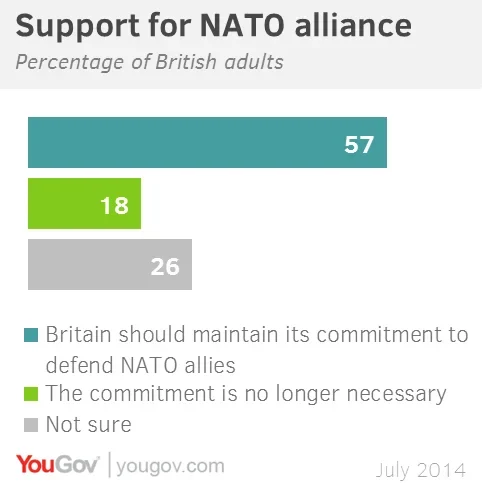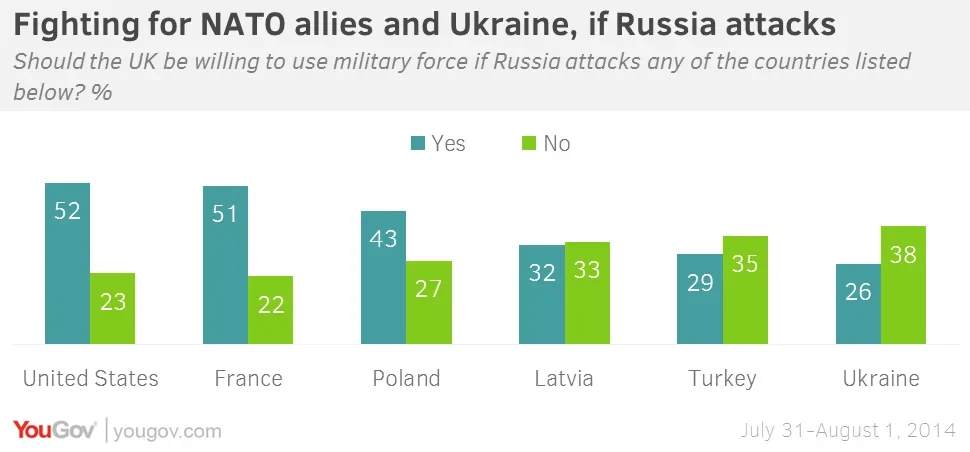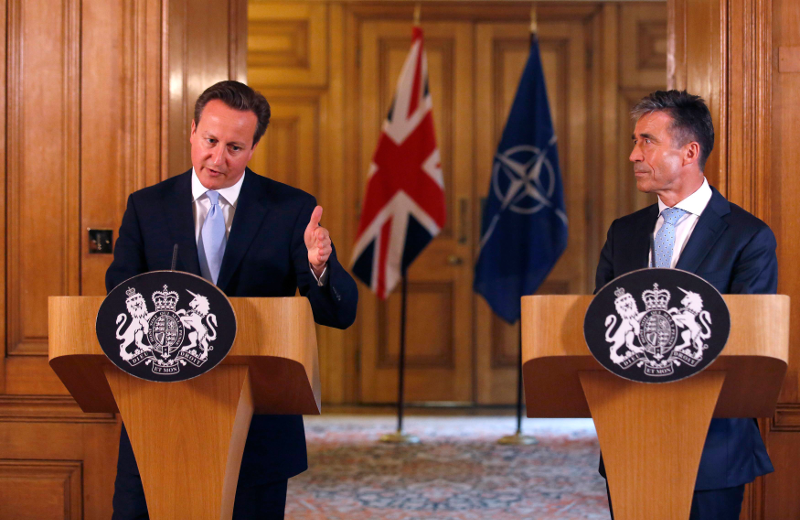Most British people back the NATO military pact in principle, but waver on which NATO partners the United Kingdom should defend
David Cameron has called on NATO to deploy weapons to eastern Europe to counterbalance a newly assertive Russia. The comments come in a week when US and EU leaders announced the strongest sanctions yet, aimed against Russia’s energy, defence and banking sectors in response to the Kremlin's support of rebels in Ukraine.
A new YouGov survey reveals the majority of British people support in principle the United Kingdom’s commitment to defend its NATO allies. Article 5 of the NATO treaty requires partners to treat an attack on one NATO ally as an attack on all.
57% of the public say Britain should keep the core NATO commitment, while only 18% take the view it is “no longer necessary”. This support comes from the majority of voters from all major parties, including 55% of UKIP voters, who are usually sceptical of international agreements.

This closely resembles the views of Americans when they were asked about Article 5 in late March, and 60% said the United States should maintain the military pact.
However, like Americans, British voters remain conflicted about which NATO allies Britain should actually use military force to defend from a theoretical Russian attack.
Most British people favour defending the United States (52% support to 23% oppose) and France (51%-22%) if either were to be attacked by Russia, but support drops to 43% in the case of Poland and to just a third (32%) for Latvia. People narrowly oppose (35%) rather than support (29%) taking military action to defend Turkey, a NATO member, and oppose more widely backing Ukraine in the same way. Ukraine is not a NATO member.

Respondents were not told which countries are NATO partners and which are not. The survey also finds that 57% of British people see Russia's military as a threat to Britain, but only 11% see the threat as "critical". By contrast, 46% say Islamic terrorism poses a critical threat.
The prime minister’s remarks on NATO come days after MPs warned that NATO was 'unprepared' for a Russian attack on one of its members. Mr Cameron is preparing for a NATO summit in Wales later this summer, which will be the first NATO summit in the UK since 1990.
Image: Getty









